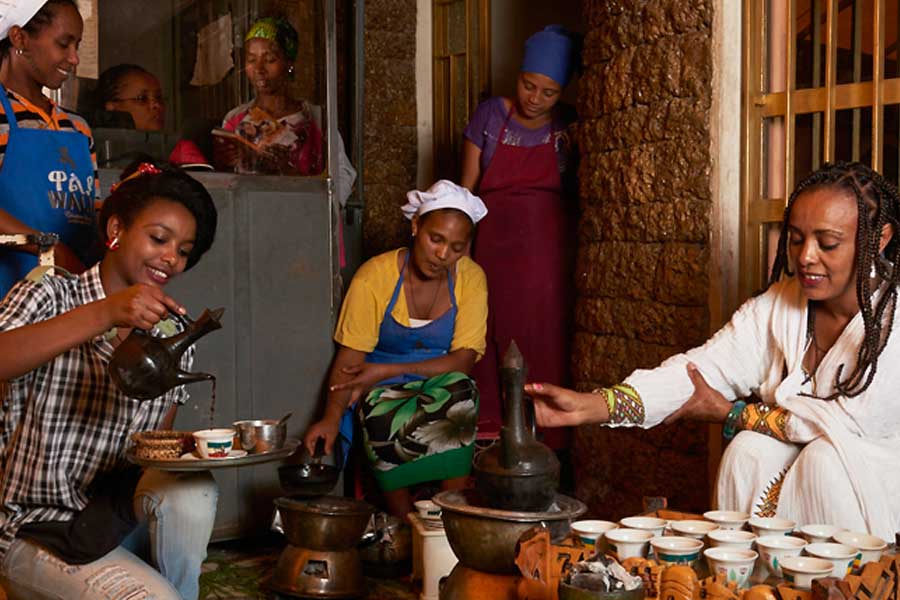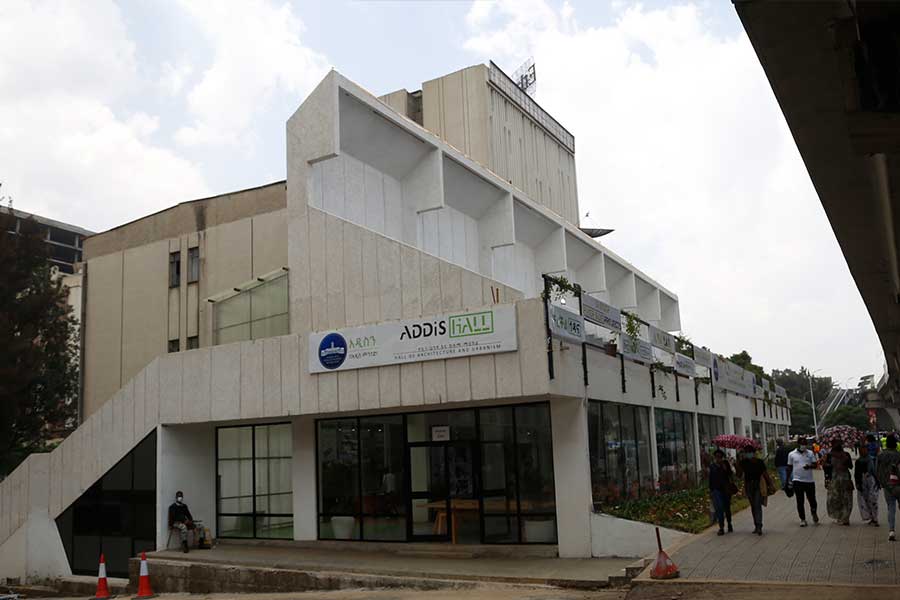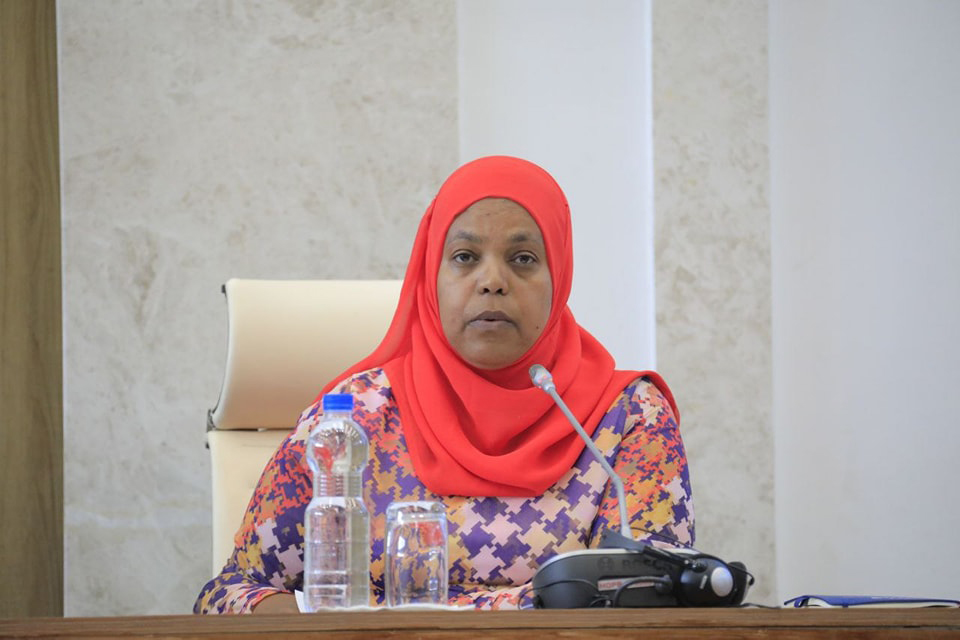
Oct 31 , 2020
By HAGOS GEBREAMLAK ( FORTUNE STAFF WRITER )
A federal training institute has revised its curricula, as well as increasing the period required to complete the first degree to four years, a one-year increase from the previous model. The previous curricula were in use for over a decade.
The Federal Technical Vocational Education & Training Institute, which offers 26 and 10 first degree and master's degree programmes, respectively, has revised the curricula of 19 of its programmes. It enrolls trainees in fields such as automotive engineering, construction, electronics, ICT, manufacturing technology, railway engineering, and surveying technology.
The revision, which took a year, also includes adding two new departments: waterworks & irrigation technology; and water supply & sanitation technology. While revising the curricula, experts from the Institute drew on the experiences of Germany, South Korea and China. Seventeen modules in fields such as history, geography, emerging technologies, critical thinking, global affairs, psychology, entrepreneurship, economics and anthropology have also been added to the coursework in all departments.
The update is set to be implemented beginning this academic year at both the Institute and 15 satellite polytechnic schools providing technical education across the nation. Vocational schools have been shut down since March as an effort to contain COVID-19. Still they are expected to open in the coming weeks along with other educational institutions in the country.
Two years ago, the Ministry of Education developed the Ethiopian Education Development Roadmap with the aim of reforming the education sector by 2030. The new revision was carried out based on the directives and specifications of the Roadmap, according to Teshale Berecha, director-general of the Institute.
Before launching the revision, the Institute conducted an assessment across technical and vocational schools on the quality of the education, and the assessment found that there have been significant problems on the efficiency of the training and pedagogy delivered to pupils, according to him.
"The students weren't obtaining the desired skills and knowledge," said Teshale. “There has been an insufficiency in internships, and students are obtaining limited technical skills especially."
Graduates normally go on to work as teachers in the training and vocational centres or as technicians for different enterprises. Graduate teachers had had problems wholly conceiving the pedagogy, and technicians were found to lack competency when they gained employment, according to Teshale.
The Institute realises the need for 12 new courses such as critical thinking, history, geography, psychology, mathematics, language and emerging technologies to remedy the situation. These courses will be delivered to students as part of the newly revised curricula.
Officials gathered that there is a need for extensive internships for students to equip them with necessary skills, according to Haftom Gebregziabher, deputy director-general for academics at the Institute.
With the revised curricula, the students will spend the summer season working in industries. Previously, there were no internship programmes available to students.
“There is much more demand for technical skills than theoretical skills in the economy," Teshale said. “We needed to make the curricula more practice-oriented,” Teshale said.
The Institute, which has enrolled 3,500 pupils so far, is now establishing workshops with fully equipped facilities, encouraging craftsmanship skills, technological innovation and imitation. IT skills courses that focus on technology automation will also be integrated into all programmes, and the Institute has established specialised computer labs at education centres to meet this end.
Last year, eight programmes were revised, and two new departments — apparel technology and textile technology — were added to the second-degree programme.
The new curricula include new programmes and courses that are timely and supportive to the economy, according to Chanayalew Eneyew (PhD), assistant professor of curriculum studies at Bahir Dar University. But the Roadmap was developed through a top-down approach, according to him.
The expert argues that the Roadmap and the curricula might have a flawed understanding of the professions that the economy demands.
“There should've been massive market assessments, which could've been used as input,” he said.
The more practical TVET education is vital to the economy, fulfilling the demands for a skilled workforce and promoting entrepreneurship, says the expert.
"But it hasn't been playing as significant a role as expected in the economy, as graduates have not had the skill levels necessary," said Chanyalew.
He recommends internships be given due attention to achieve the competency needed by industries. Currently, 10,000 students are enrolled at the Institute.
PUBLISHED ON
Oct 31,2020 [ VOL
21 , NO
1070]

Radar | Mar 19,2022

Fortune News | Feb 20,2021

Fortune News | Apr 22,2022

Fortune News | Aug 03,2019

Fortune News | Jul 13,2020

Radar | Apr 20,2019

Fortune News | Oct 01,2022

Fortune News | Apr 20,2019

Radar | Sep 11,2020

Fortune News | Apr 21,2025

Dec 22 , 2024 . By TIZITA SHEWAFERAW
Charged with transforming colossal state-owned enterprises into modern and competitiv...

Aug 18 , 2024 . By AKSAH ITALO
Although predictable Yonas Zerihun's job in the ride-hailing service is not immune to...

Jul 28 , 2024 . By TIZITA SHEWAFERAW
Unhabitual, perhaps too many, Samuel Gebreyohannes, 38, used to occasionally enjoy a couple of beers at breakfast. However, he recently swit...

Jul 13 , 2024 . By AKSAH ITALO
Investors who rely on tractors, trucks, and field vehicles for commuting, transporting commodities, and f...

Jul 12 , 2025
Political leaders and their policy advisors often promise great leaps forward, yet th...

Jul 5 , 2025
Six years ago, Ethiopia was the darling of international liberal commentators. A year...

Jun 28 , 2025
Meseret Damtie, the assertive auditor general, has never been shy about naming names...

Jun 21 , 2025
A well-worn adage says, “Budget is not destiny, but it is direction.” Examining t...